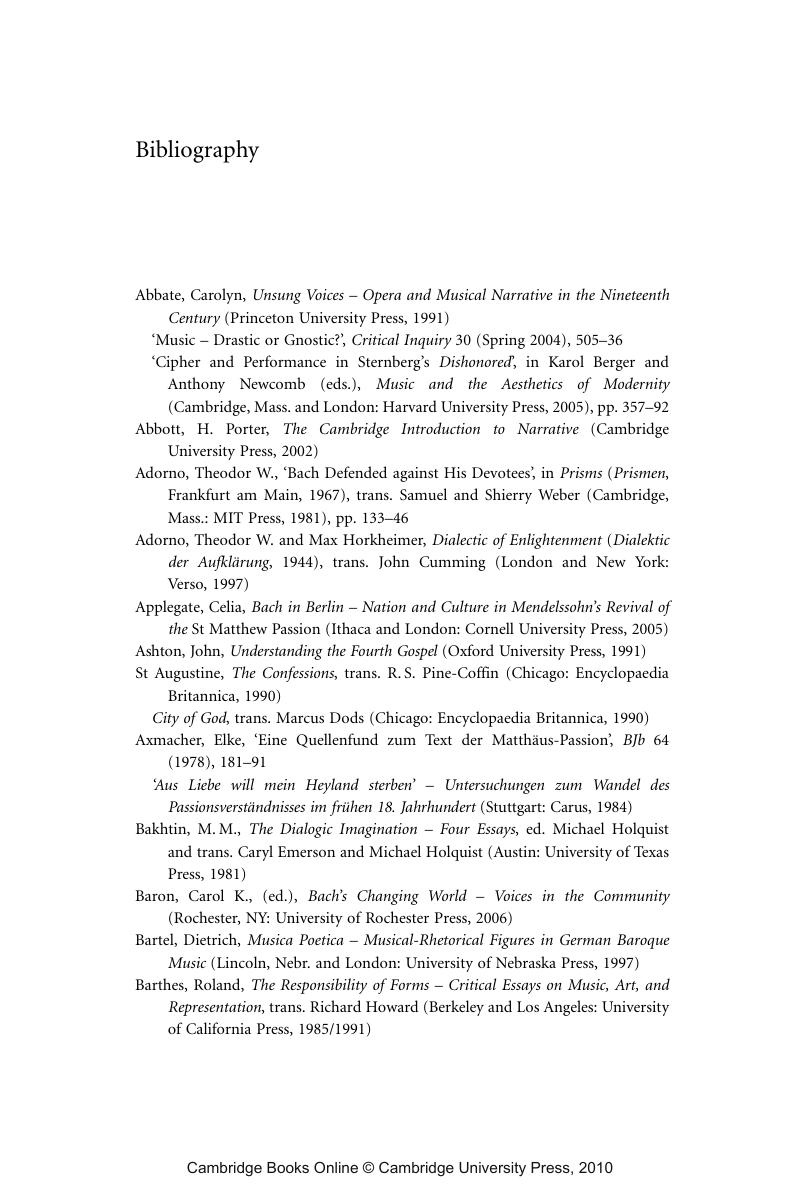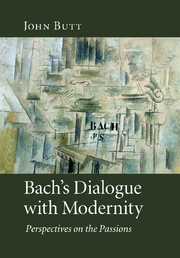Book contents
- Frontmatter
- Contents
- Preface
- List of abbreviations
- Introduction
- 1 Bach's Passions and the construction of early modern subjectivities
- 2 Bach's Passions and the textures of time
- 3 The hermeneutic perspective – negotiating the poles of faith and suspicion
- 4 The voices we hear and the construction of narrative authority
- 5 Between rhetoric and dialectic – Bach's inventive stance
- Afterword
- Appendix
- Bibliography
- Index
- References
Bibliography
Published online by Cambridge University Press: 26 February 2010
- Frontmatter
- Contents
- Preface
- List of abbreviations
- Introduction
- 1 Bach's Passions and the construction of early modern subjectivities
- 2 Bach's Passions and the textures of time
- 3 The hermeneutic perspective – negotiating the poles of faith and suspicion
- 4 The voices we hear and the construction of narrative authority
- 5 Between rhetoric and dialectic – Bach's inventive stance
- Afterword
- Appendix
- Bibliography
- Index
- References
Summary

- Type
- Chapter
- Information
- Bach's Dialogue with ModernityPerspectives on the Passions, pp. 302 - 311Publisher: Cambridge University PressPrint publication year: 2010



